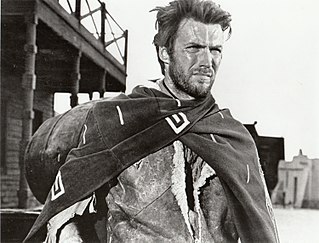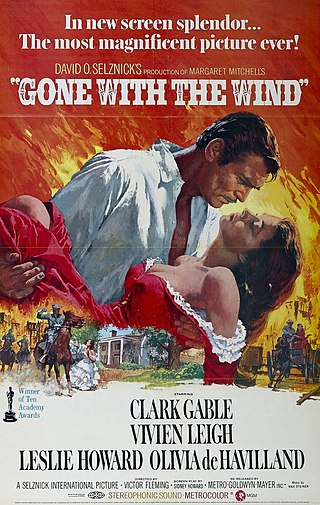Related Research Articles

A comedy film is a film genre that emphasizes humor. These films are designed to amuse audiences and make them laugh. Films in this genre typically have a happy ending, with dark comedy being an exception to this rule. Comedy is one of the oldest genres in film, and it is derived from classical comedy in theatre. Some of the earliest silent films were slapstick comedies, which often relied on visual depictions, such as sight gags and pratfalls, so they could be enjoyed without requiring sound. To provide drama and excitement to silent movies, live music was played in sync with the action on the screen, on pianos, organs, and other instruments. When sound films became more prevalent during the 1920s, comedy films grew in popularity, as laughter could result from both burlesque situations but also from humorous dialogue.

Fantasy films are films that belong to the fantasy genre with fantastic themes, usually magic, supernatural events, mythology, folklore, or exotic fantasy worlds. The genre is considered a form of speculative fiction alongside science fiction films and horror films, although the genres do overlap. Fantasy films often have an element of magic, myth, wonder, escapism, and the extraordinary.

A film genre is a stylistic or thematic category for motion pictures based on similarities either in the narrative elements, aesthetic approach, or the emotional response to the film.

Joel Daniel Coen and Ethan Jesse Coen, collectively known as the Coen brothers, are an American filmmaking duo. Their films span many genres and styles, which they frequently subvert or parody. Their most acclaimed works include Blood Simple (1984), Raising Arizona (1987), Miller's Crossing (1990), Barton Fink (1991), Fargo (1996), The Big Lebowski (1998), O Brother, Where Art Thou? (2000), No Country for Old Men (2007), A Serious Man (2009), True Grit (2010) and Inside Llewyn Davis (2013). Many of their films are distinctly American, often examining the culture of the American South and American West in both modern and historical contexts.
Romantic comedy is a subgenre of comedy and romance fiction, focusing on lighthearted, humorous plot lines centered on romantic ideas, such as how true love is able to surmount most obstacles. In a typical romantic comedy, the two lovers tend to be young, likeable, and seemingly meant for each other, yet they are kept apart by some complicating circumstance until, surmounting all obstacles, they are finally united. A fairy-tale-style happy ending is a typical feature.
Science fiction films This is a list of science fiction films organized chronologically. These films have been released to a cinema audience by the commercial film industry and are widely distributed with reviews by reputable critics. This includes silent film–era releases, serial films, and feature-length films. All of the films include core elements of science fiction, but can cross into other genres such as drama, mystery, action, horror, fantasy, and comedy.

Crime films, in the broadest sense, is a film genre inspired by and analogous to the crime fiction literary genre. Films of this genre generally involve various aspects of crime and its detection. Stylistically, the genre may overlap and combine with many other genres, such as drama or gangster film, but also include comedy, and, in turn, is divided into many sub-genres, such as mystery, suspense or noir.

Romance films involve romantic love stories recorded in visual media for broadcast in theatres or on television that focus on passion, emotion, and the affectionate romantic involvement of the main characters. Typically their journey through dating, courtship or marriage is featured. These films make the search for romantic love the main plot focus. Occasionally, romance lovers face obstacles such as finances, physical illness, various forms of discrimination, psychological restraints or family resistance. As in all quite strong, deep and close romantic relationships, the tensions of day-to-day life, temptations, and differences in compatibility enter into the plots of romantic films.

An exploitation film is a film that tries to succeed financially by exploiting current trends, niche genres, or lurid content. Exploitation films are generally low-quality "B movies", though some set trends, attract critical attention, become historically important, and even gain a cult following.

An adventure film is a form of adventure fiction, and is a genre of film. Subgenres of adventure films include swashbuckler films, pirate films, and survival films. Adventure films may also be combined with other film genres such as action, comedy, drama, fantasy, science fiction, family, horror, war, or the medium of animation.
In literature, psychological fiction is a narrative genre that emphasizes interior characterization and motivation to explore the spiritual, emotional, and mental lives of its characters. The mode of narration examines the reasons for the behaviours of the character, which propel the plot and explain the story. Psychological realism is achieved with deep explorations and explanations of the mental states of the character's inner person, usually through narrative modes such as stream of consciousness and flashbacks.

James Allen Mangold is an American film director, producer and screenwriter. Noted for his versatility in tackling a range of genres, Mangold made his debut as a film director with Heavy (1995), and is best known for the films Cop Land (1997), Girl, Interrupted (1999), Identity (2003), Walk the Line (2005), 3:10 to Yuma (2007), and two films in the X-Men franchise with The Wolverine (2013) and Logan (2017), the latter of which earned him a nomination for the Academy Award for Best Adapted Screenplay. He then directed the sports drama film Ford v Ferrari (2019), which earned him a nomination for the Academy Award for Best Picture, and directed and co-wrote Indiana Jones and the Dial of Destiny (2023), the fifth and final installment in the Indiana Jones series.

Andrew Ayers Stanton is an American filmmaker and voice actor based at Pixar, which he joined in 1990. His film work includes co-writing and co-directing Pixar's A Bug's Life (1998), directing Finding Nemo (2003) and its sequel Finding Dory (2016), WALL-E (2008), and the live-action film, Disney's John Carter (2012), and co-writing all four Toy Story films (1995–2019) and Monsters, Inc. (2001).

Scott Alexander and Larry Karaszewski are an American screenwriting duo, best known for writing postmodern biopics with larger-than-life characters. They coined the term "anti-biopic" to describe the genre they invented: Movies about people who don't deserve one. They are uninterested in the traditional "great man" story, focusing instead on obscure strivers in American pop culture. Their works in this genre include Ed Wood, The People vs. Larry Flynt, Man on the Moon, Big Eyes, Dolemite Is My Name, and the series The People v. O. J. Simpson: American Crime Story.
Sex comedy, erotic comedy or more broadly sexual comedy is a genre in which comedy is motivated by sexual situations and love affairs. Although "sex comedy" is primarily a description of dramatic forms such as theatre and film, literary works such as those of Ovid and Geoffrey Chaucer may be considered sex comedies.
Trial films is a subgenre of the legal/courtroom drama that encompasses films that are centered on a civil or criminal trial, typically a trial by jury.

In film and television, drama is a category or genre of narrative fiction intended to be more serious than humorous in tone. The drama of this kind is usually qualified with additional terms that specify its particular super-genre, macro-genre, or micro-genre, such as soap opera, police crime drama, political drama, legal drama, historical drama, domestic drama, teen drama, and comedy-drama (dramedy). These terms tend to indicate a particular setting or subject matter, or they combine a drama's otherwise serious tone with elements that encourage a broader range of moods. To these ends, a primary element in a drama is the occurrence of conflict—emotional, social, or otherwise—and its resolution in the course of the storyline.

A pornographic parody film is a subgenre of the pornographic film industry genre where the basis for the production's story or plotline is the parody of a mainstream television show, feature film, public figure, video game or literary works. This subgenre also includes parody of historical or contemporary events such as political scandals. The subgenre has gained acceptance by the adult industry to the extent that major awards are presented in this category by organizations such as AVN and XRCO.
References
- ↑ Crosson, Seán (2013). Sport and Film. Abingdon, Oxon: Routledge. p. 60. ISBN 9780415569934.
- ↑ Firestein, David J. (2007). "Fields of Dreams: American Sports Movies". E Journal USA. 12.
- ↑ "Sports". The Script Lab. 2011-03-26. Retrieved 2022-11-02.
- ↑ Williams, Eric R. Screen adaptation : beyond the basics : techniques for adapting books, comics, and real-life stories into screenplays. Ayres, Tyler. New York. ISBN 978-1-315-66941-0. OCLC 986993829.
- ↑ "Subgenre - Sports Drama". AllMovie. Retrieved 2022-11-02.
- ↑ Mangubat, Lio (January 14, 2020). "The Spin List: These are the sports movies that have won Best Picture at the Oscars". The Spin.
- ↑ Conti • •, Kristen. "Oscar-Worthy Sports Films Throughout History". NBC4 Washington. Retrieved 2022-11-02.